
I asked my neighbor who hoses off his air conditioner condenser every spring why he does it. “Because my dad always told me I had to,” he said.
Conventional wisdom like what my neighbor’s dad imparted may always seem right. But through my HVAC scholarship — the study of heating, ventilation and air-conditioning systems — I’ve learned that this particular presumption is probably wrong.
Dirty equipment
The equipment I’m talking about washing is the outdoor part of central air-conditioning systems that move heat from homes into the outdoors.
Technically known as condenser coils, they are usually about the size of a large garbage can but they can be as small as a bucket or as big as a refrigerator. Some are protected by louvered grilles but most are exposed to the elements. Their metal fins help transfer heat to the air. They contain tubes that carry hot refrigerant, which gives off heat as it condenses.
Stuff like windblown seeds, dust and grass clippings tends to collect on the coil surface. Most homeowners and HVAC companies envision that this untidy-looking stuff acts like an insulating blanket, slowing down the passage of heat from inside to outside. Any debris that accumulates would also interfere with airflow over the coil, further restricting the system’s ability to expel heat.
The nitty-gritty
Mehdi Mehrabi, an architectural engineering graduate student, and I set out to learn the extent to which dirty residential air conditioners are less efficient than clean ones. What we found astonished us – and many of the other experts in this field.
Previous work on this question simulated outdoor dirt with synthetic materials in a laboratory setting, or used reduced airflow as a proxy for the effects of dirty coils. Although it’s necessary to carefully to control operating conditions, we took a novel approach: collecting condensers that had gotten dirty through ordinary residential use, and bringing them to the lab for study with a special test apparatus.
This meant that they were coated in real-world dust and other crud in everyday amounts. We tested the dirty air conditioners, then washed them thoroughly with a garden hose and tested again. We also used a commercial coil cleaning fluid and tested them for a third time.
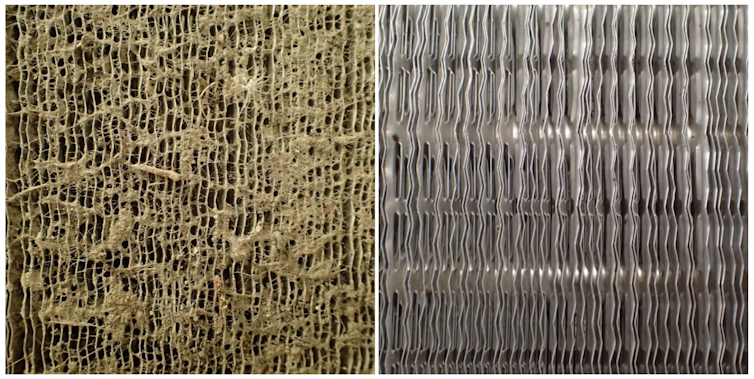
[Photo credit: Mehdi Mehrabi, CC BY-SA]
Surprisingly, we found that dirty air conditioner condensers often perform better than clean ones. The change in condenser coil heat transfer performance ranged from a 7% increase to a 7% decrease for the coils we tested. The average change was … none at all.
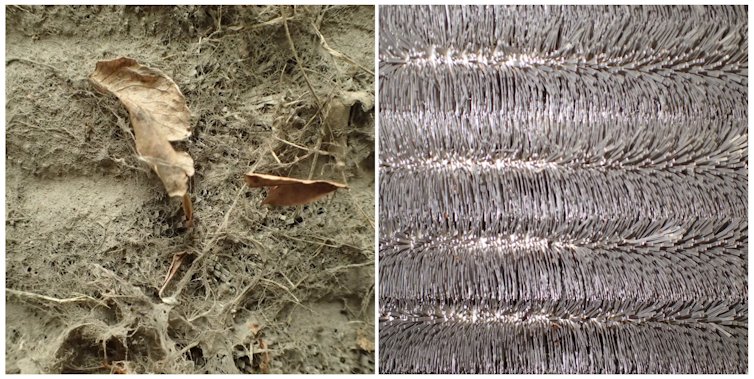
[Photo credit: Mehdi Mehrabi, CC BY-SA]
The coil that registered a 7% improvement after getting cleaned up looked quite dirty, with 7 grams of dirt per square foot of coil surface area. But the coil that performed 7% worse was even dirtier, with 17 grams of dirt per square foot. It was so filthy, in fact, that it was nearly impossible to see the metal fins before we gave it a wash. Most of the condenser coils we tested in the lab were cleaner than both of those.
No insulating blanket
To see how the equipment’s performance could improve by getting dirty, we did further testing.
That next round of study suggested that the accumulated dirt stirs up the air passing over the condenser coils. Technically called “turbulence,” these little gusts can transfer heat away from the coil better. For some coil designs, this can cause the equipment to perform better when it’s dirty than when it’s clean. This is true even when the dirt has reduced the airflow rate.
If your home has one of these things, you are probably wondering whether you should you wash your own condenser. Here’s what you should know.
Cleaning your air conditioner might make it run better. It might make it run worse. But it probably won’t make any difference. I now personally believe in skipping this task, unless the coil is so dirty that it’s hard to see the metal fins. Although, if it will make you feel better, go ahead and hose it down. To be honest, that’s what I plan to do from now on.
Letting go of deep-seated beliefs of any kind is hard, whether it’s that dieting makes you lose weight in the long run — something recent studies do not support — or if this particular home maintenance ritual is justified. As news of our findings spreads, I’m bracing for some unpleasant responses from people who might lose out if the condenser-cleaning business dries up and others who simply refuse to accept that there was no basis for the conventional wisdom on this question.![]()
David Yuill is an assistant professor of architectural engineering at the University of Nebraska-Lincoln. This article is republished from The Conversation under a Creative Commons license. Read the original article.
Weekly Newsletter
Get building science and energy efficiency advice, plus special offers, in your inbox.





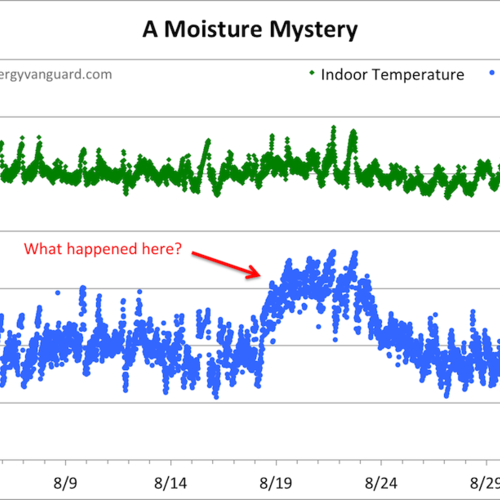
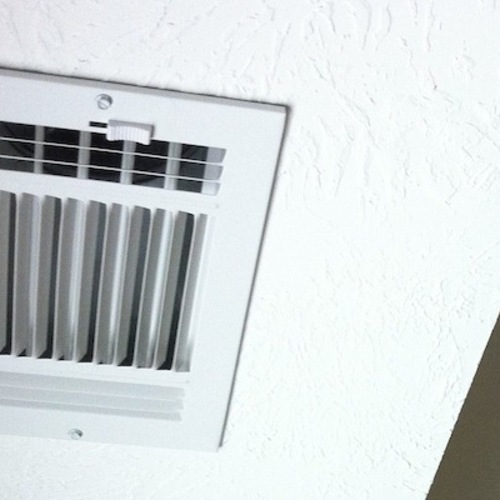
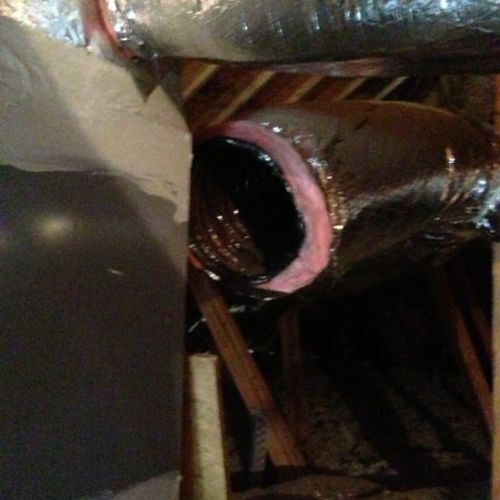







22 Comments
News has spread, and there are some unpleasant responses... https://www.reddit.com/r/HVAC/comments/b4cskc/skip_this_chore_cleaning_your_air_conditioner/
Not a lot of depth in those comments, but a couple interesting points are made:
* The advice to only clean it when it's dirty is a bit obvious. Probably very few reasonable people think that cleaning an already clean coil is helpful.
* This comment: "Guess I imagined all those calls last year where head pressure was tripping the limit switch due to dirty coils..." -- have you tried to reconcile your findings with real world HVAC techs' anecdotes? You are pretty confrontational about dismissing them due to bias or being stubbornly irrational, but by coming out of the gate swinging like this, you are showing a bias of your own. This is especially unfortunate because it plays into the already divisive stereotype of ivory tower engineers and academics ignoring the valuable knowledge of blue collar workers in the field.
* You focus on average results and the unpredictable small swings between positive and negative improvements, but I think special attention is warranted for the worst case scenario. I don't care if my cleaning randomly swings efficiency around by a few points, if it means I can avoid the nightmare case where the system breaks down in extreme weather. Did you try to look for systems that were so dirty that they failed? Or were on the verge of failure? I don't see anything about that. And I think it's the most relevant test case for most people. This is what they are trying to avoid.
* It looks like you only tested 4 heavily dirty coils, and only one of them was the head-turning outlier that got worse when cleaned. How can this be enough data to form a conclusion?
I made the mistake of mentioning manual j calculations on there one time. It didn't go well. 9f all the trade subreddits that one is by far the worst for promoting good efficient work/design.
Sounds like a case of failing to control other variables and losing the results in the noise. What are the differences between the above study, the one below and the others that support clean coils?
"Therefor, it is concluded that a periodic application of the specified cleaning technique will be effective in maintaining the thermal performance of the condenser coils."
https://www.researchgate.net/publication/225925436_Impacts_of_fouling_and_cleaning_on_the_performance_of_plate_fin_and_spine_fin_heat_exchangers
Given one study that shows no average improvement with cleaning and many that show an improvement, I'll go with occasional cleaning (ie, if it looks dirty).
From the synopsis in the link:
" The predominant effect of fouling was to cause a more significant increase in air-side pressure drop than a degradation in heat transfer performance. For the single-row heat exchangers, the pressure drop increased by 28 to 31%, while the heat transfer performance decreased by 7 to 12% at the standard air face velocity of 1.53 m/s depending on fin shape. "
From this blog article:
"Surprisingly, we found that dirty air conditioner condensers often perform better than clean ones. The change in condenser coil heat transfer performance ranged from a 7% increase to a 7% decrease for the coils we tested. "
The 7-12% decrease of the 6 coils tested in the linked article isn't far outside the range of the tests cited in the blog article. It may come down to the particular coils and the test parameters.
There are other good reasons for cleaning things not linked to efficiency.
Letting debris build up on anything outdoors encourages corrosion and premature deterioration. We don't wash cars to make them go faster.
Leaving dust on indoor coils makes no more sense than leaving it under your bed, or anywhere else in the house.
I agree... Part of pride of ownership is keeping things clean.
When I've gone back to clean heat pumps for clients I find that after 3-5 years the outdoor condenser usually looks pretty good, but I think there is probably real benefit in cleaning the indoor unit. The blower wheel on a minisplit can develop quite a buildup of dirt and dust and same with the indoor/evaporator coil. It's also a good time to check for refrigerant leaks, which I do find occasionally.
I've never thought of the buildup of crud as an "insulating blanket", but it most certainly reduces airflow. Our big drycoolers at work get cleaned several times a year, and we can measure an improvement in glycol temperatures after cleaning which we've always attributed to increased airflow through the coils.
I don't think it's a good idea to use the cleaning solution every time though. The cleaners are corrosive, so the etch the coil a little every time they're used. I just clean with plan water and only use the cleaning solution occasionally when the coil is really bad. For homeowners, water alone is probably enough in almost all cases since residential condensers aren't usually running 24x7.
Bill
I can't cite a source but I remember reading a report which reached a similar conclusion about refrigerator coils.
While we don't wash cars to make them go faster, we do dimple our golf balls to make them go farther.
Concerning automotive hygiene, I used to work near a shipyard and our parking lot once suffered some etching primer overspray. There were several lawsuits, but the finish on my car was fine, having been saved by a thick protective layer of dirt.
Robert,
The refrigerator coil study was performed by researchers at LBNL, including Alan Meier. Here is a link to a news story summarizing the findings: "Cleaning the Refrigerator Coils Won't Save Energy."
I discussed the myth in my 2013 article, "Stupid Energy-Saving Tips."
Ref "Stupid Energy-Saving Tips," I suspect that was a long article.
This is got to be one of the dumbest things I've ever read. Whats the base line outdoor and indoor ambient temps, dry and wet bulb readings? Whats the systems indoor air flow? What kind of heat should it be moving? Is this the norm, more or less? My belief at this point in time that these readings were done at less than max design conditions. probably closer to a nice relaxing summer day where the equipment isn't NEEDING to remove the FULL capacity of heat that its designed to. Somebody's in bed with someone in equipment sales...good grief
Like some skeptical readers -- and like the author of this article -- I look forward to further research and replication of these findings.
I think it's a little odd that, here on GBA as well as the original site where this article was posted, many of the comments posted by those who read about David Yuill's findings have been hostile and occasionally insulting.
There was a similar reaction by many readers of my "Stupid Energy Saving Tips" article. Here's my take: there may be many reasons to clean the outdoor coils of your air conditioner. But after reading David Yuill's report, it's safe to say that you shouldn't expect dramatic energy savings from this task. Why is that conclusion threatening?
I've written that people shouldn't expect dramatic energy savings from replacing their furnace filter every 30 days, or paying an HVAC tech for an annual air conditioner checkup, or from cleaning their refrigerator coils. That doesn't mean that there may not be good reasons to perform these actions -- just that you shouldn't expect big energy savings.
the problem with the article is that its miss leading when isolating one reason not to wash when you should come full circle and spell out the reasons whys its a good ideal to keep it maintained. I envision some poor old lady sitting there with a burnt up compressor bawling cause she can't afford a new one all because she could wasn't gaining a savings in her energy bill by not having it maintained...
Let's see if I can say this without use of the insulting "s" word. I think it's a bad idea to take one small, very noisy, inconclusive, often contradicted study and use it to support much of anything.
I don't think the conclusion is threatening, I think the negative reaction is because of the title... If the title merely said somthing like "cleaning your condenser coil doesn't save energy", it wouldn't have been as provocative. But, saying you can "skid this chore" implies the energy savings are the only reason to clean the coil which is incendiary.
Or to say it another way that's equally inflammatory... "There are no good reasons to clean you condenser coil". This would also have garnered a negative reaction.
Personally I've seen commercial condenser coils fouled to the point of tripping the high pressure safety, which was resolved with cleaning. But commercial environments can be much harsher (sun baked equipment on the roof, and taxing loads that exceed the equipment's capabilities). Residentially, I've hosed off my condenser every couple years, and try and keep the weeds from crowding it.
https://m.facebook.com/story.php?story_fbid=3058042940880064&id=1600585319959174
I think this is an enormously misleading article from a study that looks at one aspect of the potential consequences from not cleaning your coil. Not very definitively at that. This article: https://www.hpacmag.com/features/compressor-maintenance/?custnum=3146567&title=HVAC+Designer&utm_source=478&utm_medium=email&utm_campaign=190619J recently published for HPAC explains in some pretty interesting detail one of the potential consequences of not cleaning your condenser coil. I would encourage GBA to publish another more informed article. Or at least rewrite this one so it is obvious that the study only looked at one aspect and you shouldn't just stop cleaning your condenser coil.
An interesting article, but it's all about "potential consequences". It contains no data about how dirty an actual coil has to be to cause how much effect. Without that, it may be more correct to say “You can either pay me a lot to frequently clean your coil or you can pay me less with no measurable effect on when it breaks down.”
This article has been thoroughly debunked here:
https://www.youtube.com/watch?v=luOCCJPys2c
Bottom line: Dirt restricts air flow. Less air flow, higher liquid line temps, higher amp draws (personally confirmed over my experiences) compression ratio increases, and since he is logging *all aspects* of the a/c system via multiple probes on outside and in, can show, EER and SEER do indeed go down.
Apparently the "test" was feeding water in the coils, not actually doing refrigerant.
That is not a thorough debunking. He's simulating a dirty condenser with the bag. What we don't know is how much dirt does closing the bag that much represents.
Look, just last year cotton fluff completely clogged up a mini split coil within a week. The unit compensated by running the fan much faster than usual.
The study made no attempt to document amp draws, or indoor performance. Only that the coil still was able to reject as much or more heat than a clean or cleaned coil.
What also matters is that each coil has several circuits, so usually the bottom one is clogged but not the upper ones. Even so, in my experience, a unit that received no maintenance had a head pressure of around 375psi, and still worked. But after cleaning went down to 250psi. Which then made the compressors's life easier, and also spend less energy pumping the refrigerant.
What next? Don't worry about dirty indoor coils because it doesn't matter? It's ok, because the superheat of the coil just went down and then the TXV compensated so no actual real change?
Again, you may not be necessarily reducing the heat expelled, but you most certainly are changing the temperature at which it happens. And that affects many other factors ignored by this study. I'm willing to bet they are still in pre 2010 level of diagnostic tools.
Log in or create an account to post a comment.
Sign up Log in